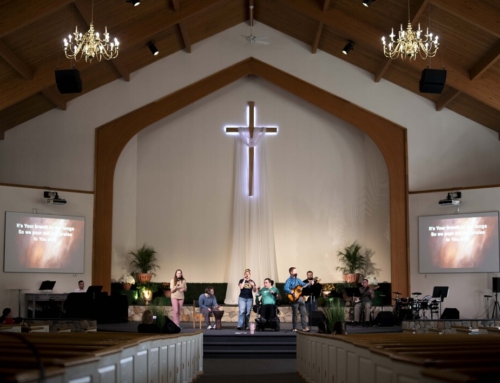Did The Americans With Disabilities Act Really Guarantee Change?
Your gift today will multiply God’s good work in the lives of people with disabilities, their families, and their communities!
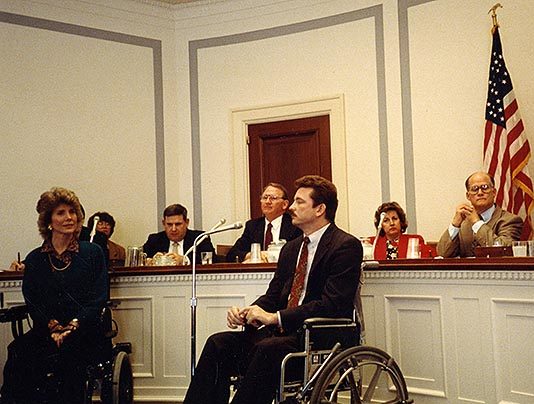
When I was a member of the National Council on Disability in the late 1980s, our group helped draft what became the Americans with Disabilities Act (ADA).
Up until that time, I had experienced feeling ‘less than’ as lack of accessibility hindered me in my wheelchair from going to certain restaurants, using public transportation, easily entering museums and libraries, as well as other inaccessible public institutions.
Many of my friends had a hard time finding jobs or barrier-free housing.
Lack of access was a serious problem for millions of Americans with disabilities.
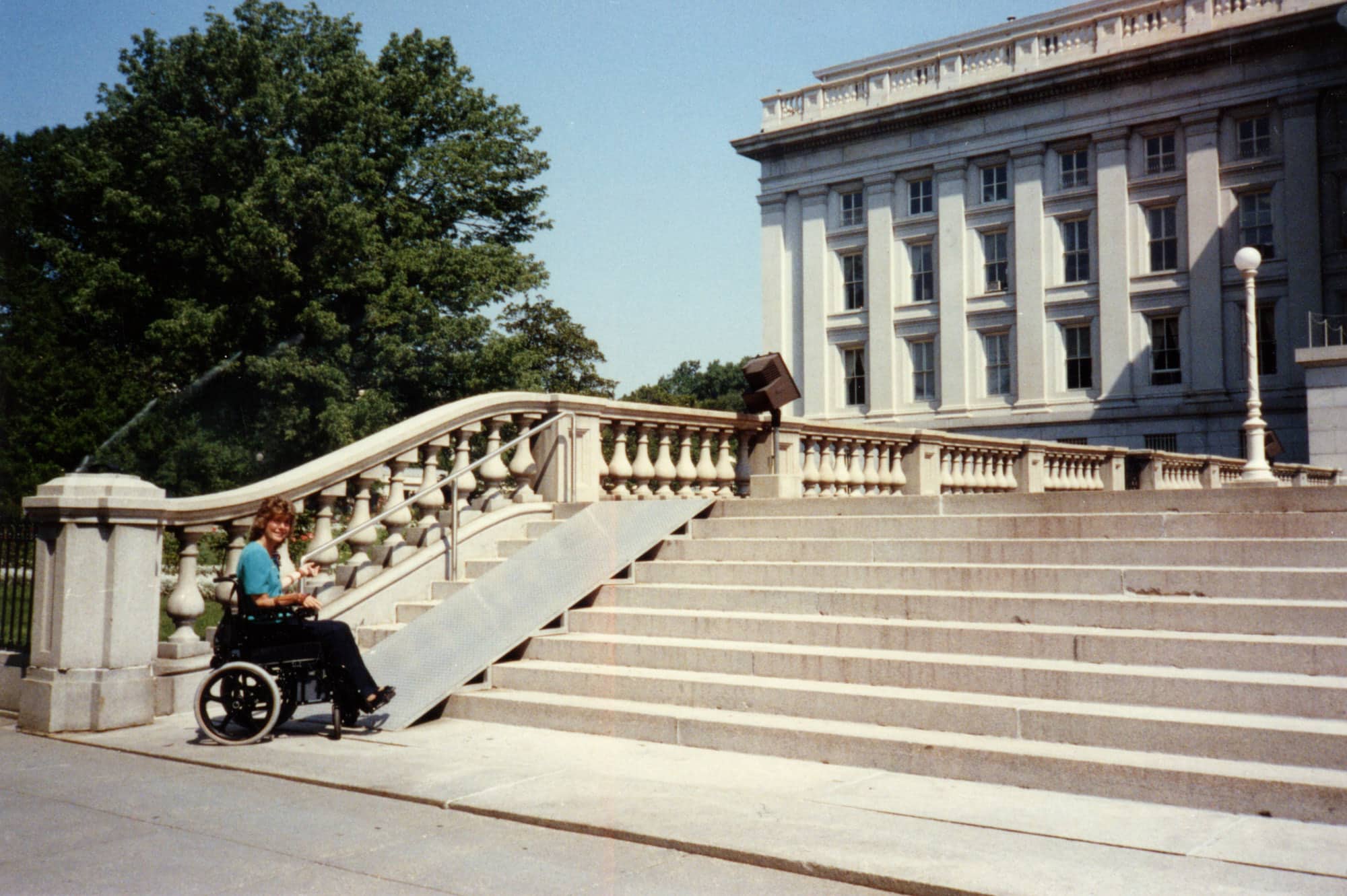
So I was delighted when, on a breezy July afternoon in 1990, I gathered with other national advocates on the White House lawn to watch President George H. W. Bush sign the ADA into law.
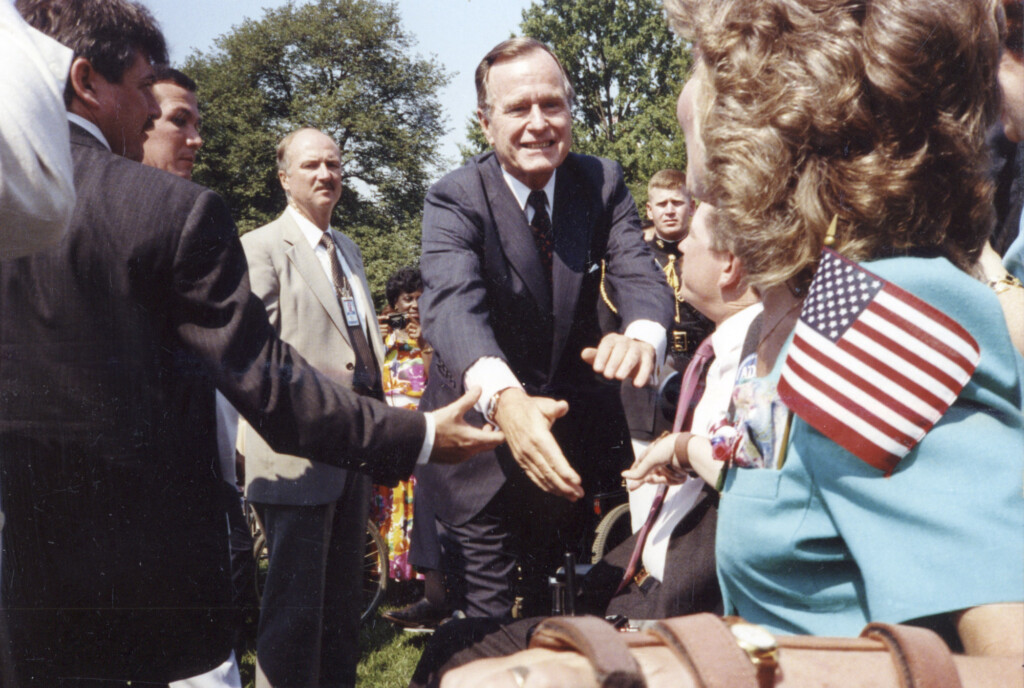
I thought of all the possibilities for which the ADA would provide access.
After the ceremony, I joined other council members at a reception during which Paul Hearn, our director, wheeled to the front to propose a toast. I will never forget his words. He said:
“This is a wonderful day. This landmark civil-rights legislation will open a wide door of access to all Americans with disabilities. Discriminatory employment policies will soon be a thing of the past—it will mean qualified people with disabilities will enjoy greater access to jobs. This law will also set new standards for constructing buildings, and it will provide greater access to public accommodations—wheelchair users will no longer have to be carried up the steps of a restaurant. And one day, buses across America will be outfitted with mechanical lifts—there’ll be no barriers to public transportation.”
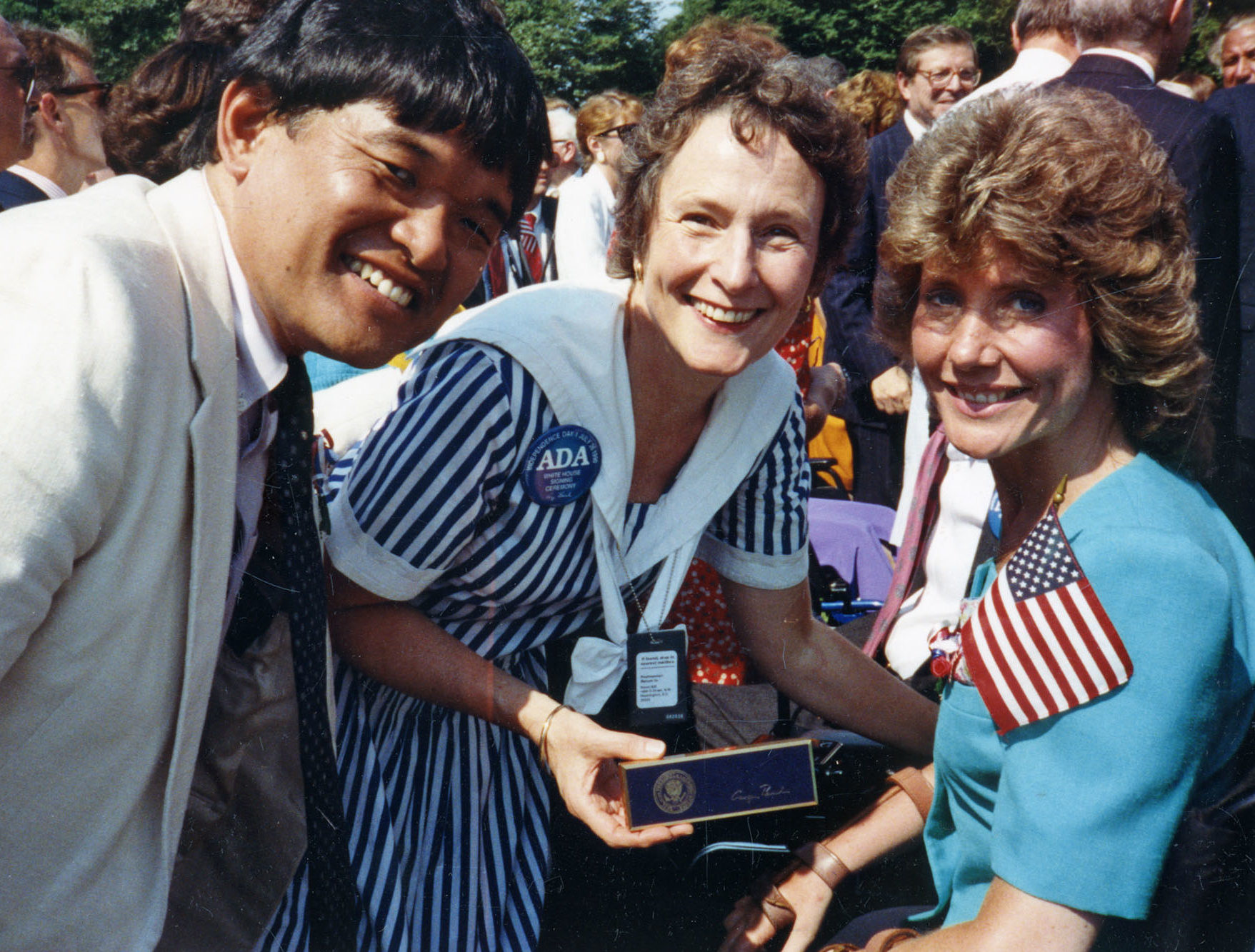
Paul then took a deep breath and proceeded:
“The Americans with Disabilities Act will do this. But it will not change the heart of the employer. This law will not change the heart of the maître de in the restaurant. It will not change the hearts of architects or people in the building industry. And this law will not change the heart of the bus driver.”
He paused one more time, lifted his glass, and said,
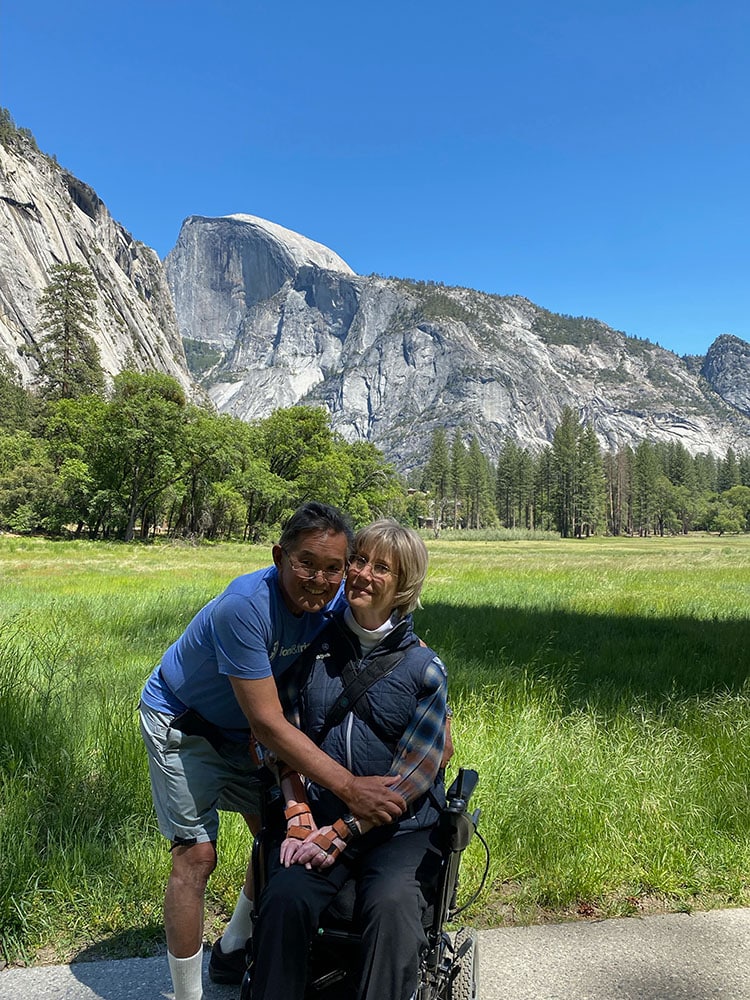
“Here’s to changed hearts.”
We’ve come a long way since that bright afternoon in 1990.
Never did I imagine that one day I would be able to roll along miles and miles of pathways in Yosemite as even our National Parks became accessible.
Today I can roll my wheelchair into a building with ease.
My friend who’s blind can walk into a concert hall with her service dog. Children with autism have access to aides and special-education programs. I look back over the years and there is such a great cause for celebration; so much has been accomplished because of ADA mandates: access, mainstreaming, inclusion…
And yet, we still need our hearts changed.
If access is having a ramp to the table, mainstreaming is having a seat at the table, and inclusion is having a voice at the table, then true embrace is being heard at the table. We will only hear and embrace people with disabilities when hearts are transformed, on a personal and a national level.
Federal laws and the way they transform social institutions do not necessarily improve attitudes or root out prejudice and discrimination. Disability awareness only takes a person so far. Legislation cannot take a disadvantaged class of persons and make them valued or even celebrated.
That’s what God does.
Only Jesus Christ can transform hearts and attitudes. Regulations and enforcements provide the impetus for change, but only the gospel of Christ transforms the character of individuals and nations. And churches. Ephesians tells us,
“For [Christ] himself is our peace, who has made us both one and has broken down in his flesh the dividing wall of hostility… And he came and preached peace to you who were far off and peace to those who were near. For through him we both have access in one Spirit to the Father.”
2:14, 17-18 (ESV)
I dream of a world in which all people with disabilities are truly celebrated.

I envision a church where every person understands our oneness with each another and the Father comes only through the costly sacrifice of the cross. When it comes to our relationship with God, all of us rely on the benefits and access Christ won for us. We all require the grace of God which is sufficient for every hardship, limitation, and weakness.
As the church lives out the beauty of this truth, we have the opportunity to showcase an exalted life-value that flies in the face of our current culture of death.
Where the ADA was written to guarantee the basic rights of Americans with disabilities, new laws now bow to the fear of disability. States have implemented legislation that allows doctors to cut short the lives of infants and children with disabilities and assist with suicide. At the same time that a disabled person’s civil rights are recognized under federal law, those rights are trivialized by stereotypical misconceptions about the ‘tragedy’ of disability.
But there’s a higher law than the laws hastening death for people with disabilities and incurable illnesses.
There’s a higher law than even the ADA. It’s the law of love.
It’s what compels the body of Christ to embrace each person living with a disability as an image-bearer of God rather than to say life isn’t worth living.

So in everything you do, live according to that higher law. Embrace people with disabilities on the basis of their inherent dignity. And always demonstrate Christ’s love for them through your words, attitudes, and actions.
– Joni Eareckson Tada


Support Joni and Friends
Your gift today will multiply God’s good work in the lives of people with disabilities, their families, and their communities!


